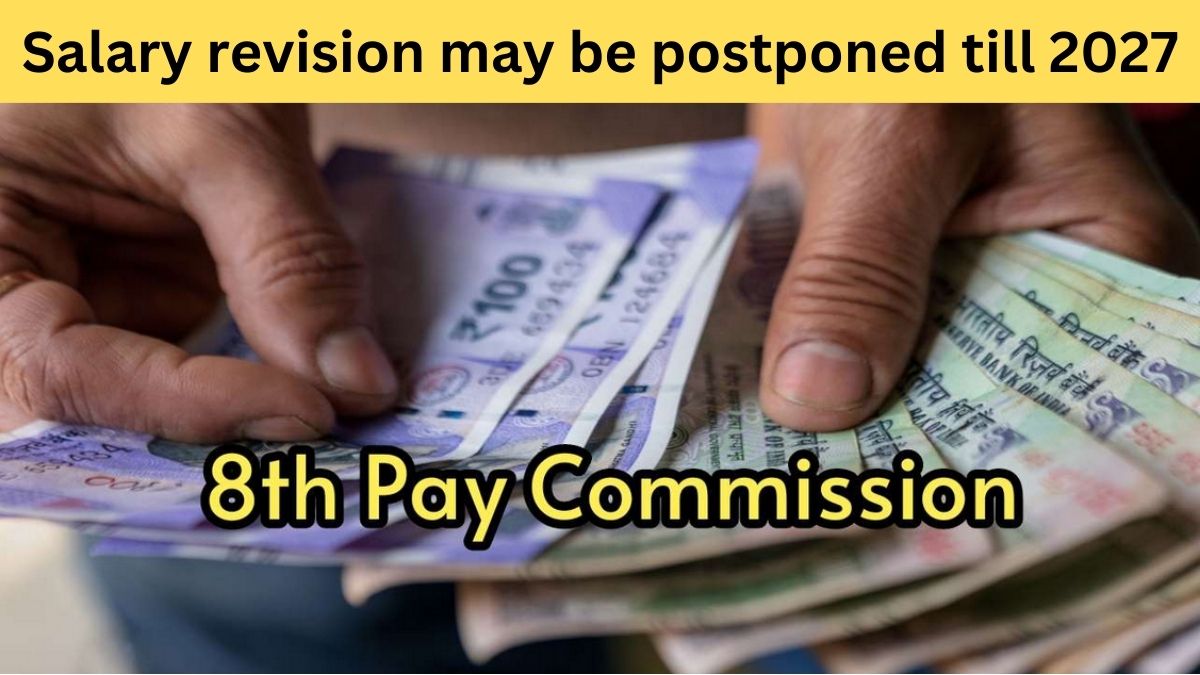The long-awaited 8th Pay Commission was expected to bring salary hikes for central government employees and pensioners starting January 2026. However, recent reports indicate that its implementation could be postponed to early 2027, leaving many workers uncertain about their financial future.
While the delay is disappointing, there is a silver lining—employees and pensioners will receive arrears for the additional waiting period once the new pay structure is implemented. Here’s everything you need to know about the timeline, approval process, and expected pay revisions under the 8th Pay Commission.
Why Is the 8th Pay Commission Being Delayed?
The implementation of a pay commission involves multiple steps, including policy discussions, data collection, and government approvals. Sources indicate that finalizing recommendations for the 8th Pay Commission may take 15 to 18 months, followed by additional time for government reviews and execution.
Key Reasons for the Delay:
| Reason | Explanation |
|---|---|
| Lengthy Review Process | The government needs time to assess economic conditions and budget constraints before approving new pay scales. |
| Consultations with Stakeholders | The government is gathering feedback from employee unions, economists, and policymakers to finalize pay revisions. |
| Implementation Logistics | Once approved, integrating the revised salaries into government payroll systems takes additional time. |
| Arrears Compensation | While delayed, the new pay structure will be applied retroactively, ensuring employees receive arrears. |
Timeline for the 8th Pay Commission
The Indian government officially announced the 8th Pay Commission on January 16, 2025. However, before salary hikes can take effect, multiple approval and implementation stages must be completed.
Expected Process and Timeline:
| Stage | Expected Date |
|---|---|
| Commission Announcement | January 16, 2025 |
| Approval of Terms of Reference (ToR) | April 2025 |
| Commission Starts Work | Mid-2025 |
| Final Recommendations Submitted | Late 2026 |
| Government Review and Approval | Early 2027 |
| Implementation of New Pay Scale | 2027 (with arrears from 2026) |
While the exact timeline depends on various administrative and economic factors, employees can expect finalized salary hikes in 2027.
Government’s Response and Consultation Process
The Indian government has acknowledged the concerns of employees regarding pay revisions. During a recent parliamentary session, officials stated that decisions on notification, appointments, and recommendations will be made at the appropriate time.
Consultation with Employee Representatives
To ensure fair salary adjustments, the Department of Personnel and Training (DoPT) is actively seeking input from the staff side of the Joint Consultative Machinery (JCM). However, it remains uncertain how many of their suggestions will be adopted in the final recommendations.
Factors Considered in the Pay Revision:
- Inflation and Cost of Living Adjustments
- Government Budget and Fiscal Constraints
- Economic Growth and Market Conditions
- Demands from Employee Unions
The extent of salary increases will depend on how the government balances employee demands with financial feasibility.
Salary and Pension Adjustments – What to Expect?
The 7th Pay Commission introduced a 2.57x hike in salaries, and experts predict that the 8th Pay Commission could bring a similar or higher increase.
Estimated Pay Hike Under the 8th Pay Commission
| Current Basic Pay (7th CPC) | Expected Basic Pay (8th CPC, 3x Increase) |
|---|---|
| ₹18,000 | ₹54,000 |
| ₹25,000 | ₹75,000 |
| ₹50,000 | ₹1,50,000 |
| ₹1,00,000 | ₹3,00,000 |
Pension Revision for Retirees
Retired government employees will also benefit from higher pension amounts, ensuring financial security in their post-service years. The revised pension will be based on the new pay scales and adjusted accordingly.
Will Employees Receive Arrears?
Yes, employees will receive arrears for the delayed implementation. Since the original implementation date was January 2026, the revised salaries will be applied retroactively, ensuring employees and pensioners receive 12 months’ worth of back pay once the 8th Pay Commission is executed in 2027.
While this provides financial relief, the long wait for salary increases remains a concern for employees struggling with rising inflation and living costs.
What Should Employees Do?
While the delay in the 8th Pay Commission may be disappointing, employees should plan their finances accordingly, keeping in mind that arrears will be paid upon implementation.
- Stay updated on government announcements.
- Prepare for delayed salary adjustments by managing expenses wisely.
- Advocate through employee unions to ensure fair pay revisions.
As the government finalizes its terms of reference and begins consultations, employees should remain engaged in the process to secure the best possible salary adjustments under the new pay commission.
Frequently Asked Questions
1. Why is the 8th Pay Commission delayed?
The delay is due to lengthy government reviews, stakeholder consultations, and budget considerations. The government needs 15-18 months to finalize recommendations, followed by additional time for approval and implementation.
2. When will the new salary structure be implemented?
The 8th Pay Commission was expected to be implemented in January 2026, but it is now likely to be delayed until early 2027. Employees will receive arrears for the waiting period.
3. How much salary increase can employees expect?
Experts predict a 3x increase in basic pay, similar to the 7th Pay Commission, which raised salaries by 2.57 times.
4. Will pensioners also receive increased benefits?
Yes, retired government employees will receive higher pension amounts based on the new pay scales introduced in the 8th Pay Commission.
5. What happens if the government does not approve the pay commission?
If the government decides against implementing the 8th Pay Commission, alternative solutions such as inflation-based adjustments or DA (Dearness Allowance) hikes might be considered. However, there is no confirmation of such alternatives yet.
Click here to know more.
Kishan is a knowledgeable writer specializing in agriculture and the latest government job recruitments, delivering clear and insightful content to inform and empower readers.

